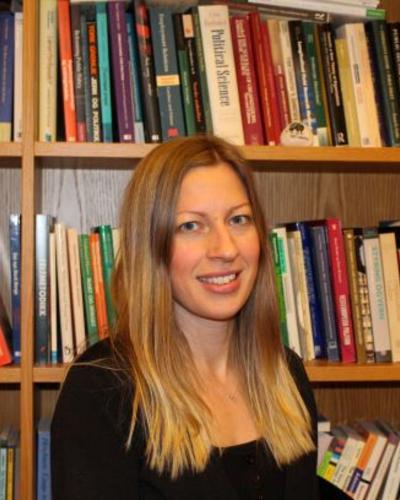TROPICO young research network, part III: Collaborating to solve complex crimes. Insights from a postdoc project on digital platforms in international police collaboration
16 Dec 2019 | Published by Sofia Jonsson
“On 19 November, the United Kingdom’s South Yorkshire Police and the Romanian National Police (Poliția Română), supported by Europol and Eurojust, dismantled an organised crime group involved in human trafficking for sexual exploitation. On the action day, law enforcement officers from Romania and the UK carried out 11 house searches (5 in Romania and 6 in the UK). The operation led to the arrests of nine suspected members of the organised crime group in the UK and the detention of three individuals in Romania. Police further identified eight potential victims of human trafficking, all women aged between 18 and 30 years old” (Europol 2019).

The above success story would not have been possible without close international police collaboration. The International Organization for Migration (IOM) reports, from the Counter Trafficking Data Collaborative (CTDC), that trafficking victims of 169 different nationalities were identified in 172 countries between the years 2002 and 2018 (CTDC 2019). Consequently, in order to convict a trafficker, evidence needs to be collected in different countries.
Sharing sensitive information is crucial in police collaboration to solve global and complex crimes. Such information exchange is increasingly taking place on digital platforms. In 2017, the Head of Interpol for example emphasized that: “Regional and global police cooperation has never been more essential against terrorism and transnational organized crime”. However, the type of information that is crucial in the investigation of transnational crime needs to be shared “through trusted channels”, said Secretary General Stock at Interpol (Interpol 2017).
Despite the importance of this type of collaborative efforts, research about drivers and potential obstacles to international police collaboration to counteract transnational sex trafficking, and how they use digital tools to share information and experiences, is scarce. Although globalization of crime makes international police collaboration a necessity, actors policing transnational sex trafficking work to a high degree in an environment where corruption may be widespread, procedures uncertain, and policy aims ambiguous. These are factors that may make international collaboration difficult. Moreover, the use of digital platforms may change previous structure of collaborative relationship, the same can also obstruct information exchange if parties entering such collaboration distrust the system.
In my post doc project that I started in February this year at the Department of Administration and Organization Theory at the University of Bergen, I examine international police collaboration to counteract transnational sex trafficking using digital platforms. The project is unique and wants to fill an important research gap. Furthermore, it is well placed within TROPICO as it assesses institutional and individual drivers for collaboration, and analyses collaboration with a special emphasis on the exploitation of ICT. The project contributes to TROPICO by studying collaboration across public administrations in different countries, and emphasizing how digital platforms may affect this type of collaboration. It further aims to provide policy recommendations on how to develop international police collaboration to counteract transnational crime with a special focus on collaboration taking place on online platforms. Being part of TROPICO is crucial for the development of my research. In February next year I will present it within the young research network of TROPICO, something that I am looking forward to, both to receive valuable feedback on my own project, but also to learn from fellow researchers about their activities within TROPICO. I also think that being a part of such a wide network of highly skilled scholars in this very important field, enrichens the way I think about research and how I can go about in communicating findings beyond the research community.
Before starting my postdoc project, I was a PhD candidate at the political science department at Gothenburg University where I was affiliated with the Quality of Government Institute (QoG). My research interests include digitalization, policing of transnational crime, gender and bureaucracy, gender and corruption, and policy implementation. Currently, I am analysing the effects of digitalization on international police collaboration, the role of trust for collaboration, and the relationship between prostitution law and sex-buying behavior. I primarily use quantitative analysis and experimental survey research in my research.
For additional information about the post doc project, please contact me at [email protected].
